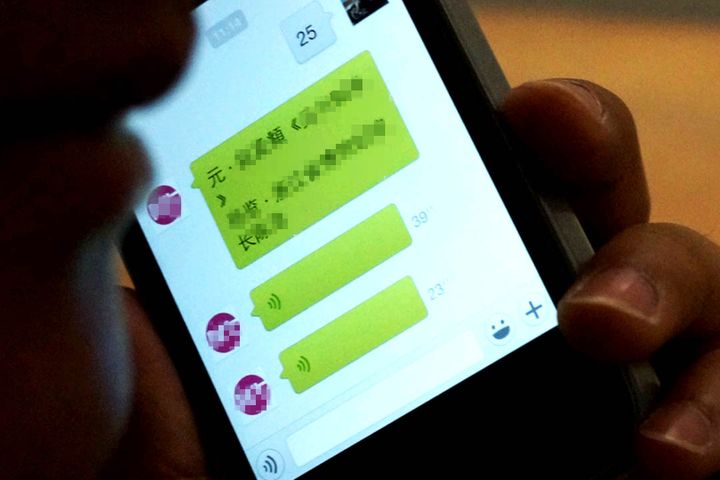 Chinese Regulator Cracks Insider Trading Case Using WeChat Message Trail
Chinese Regulator Cracks Insider Trading Case Using WeChat Message Trail(Yicai Global) Jan. 6 -- Messages sent via WeChat, the super app owned and run by Chinese internet giant Tencent Holdings, have been classified as digital evidence by China's highest court, giving the judicial system greater detective powers.
The Supreme People's Court for the first time defined the scope of digital evidence admissible in court on Dec. 26 to include text and voice messages, emails, electronic transaction records, digital certificates as well as content published on websites, blogs, microblogs.
This fortified electronic armory helped the China Securities Regulatory Commission to track down a case of insider trading.
In 2018, Guanfu Holdings, a plastic raw material trader and pharmaceutical intermediates developer, was preparing to acquire grocery wholesale distributor Shanghai Shangang Trade Industry. A shareholder of Shangang Trade, surnamed Liu, used WeChat to communicate with a Guangfu shareholder and president of steel industry information and trading platform Ganggang E-Commerce Shanghai, surnamed Zhou.
"Is the news reliable," Liu messaged Zhou on May 31, 2018. "Don't ask me on WeChat," Zhou replied. Later, Zhou confirmed the takeover and sent Liu a voice message cautioning him not to tell anyone as the purchase remained confidential.
Liu then bought 840,000 shares in Fujian province-based Guanfu over the next few days. It was not a profitable purchase and he would eventually lose CNY1 million (USD143,440) on the stock exchange.
Using his WeChat records as evidence, Liu was found guilty of insider trading, the Fujian branch of the securities and futures exchanges watchdog said on Dec. 30. He was fined CNY600,000 (USD86,000) and ordered to deal with his shares in accordance with the law.
In a further revision to the securities law that will come into effect on March 1, the maximum fine for insider trading has doubled from five to 10 times the amount involved. The minimum fine remains the amount involved.
Editor: Kim Taylor